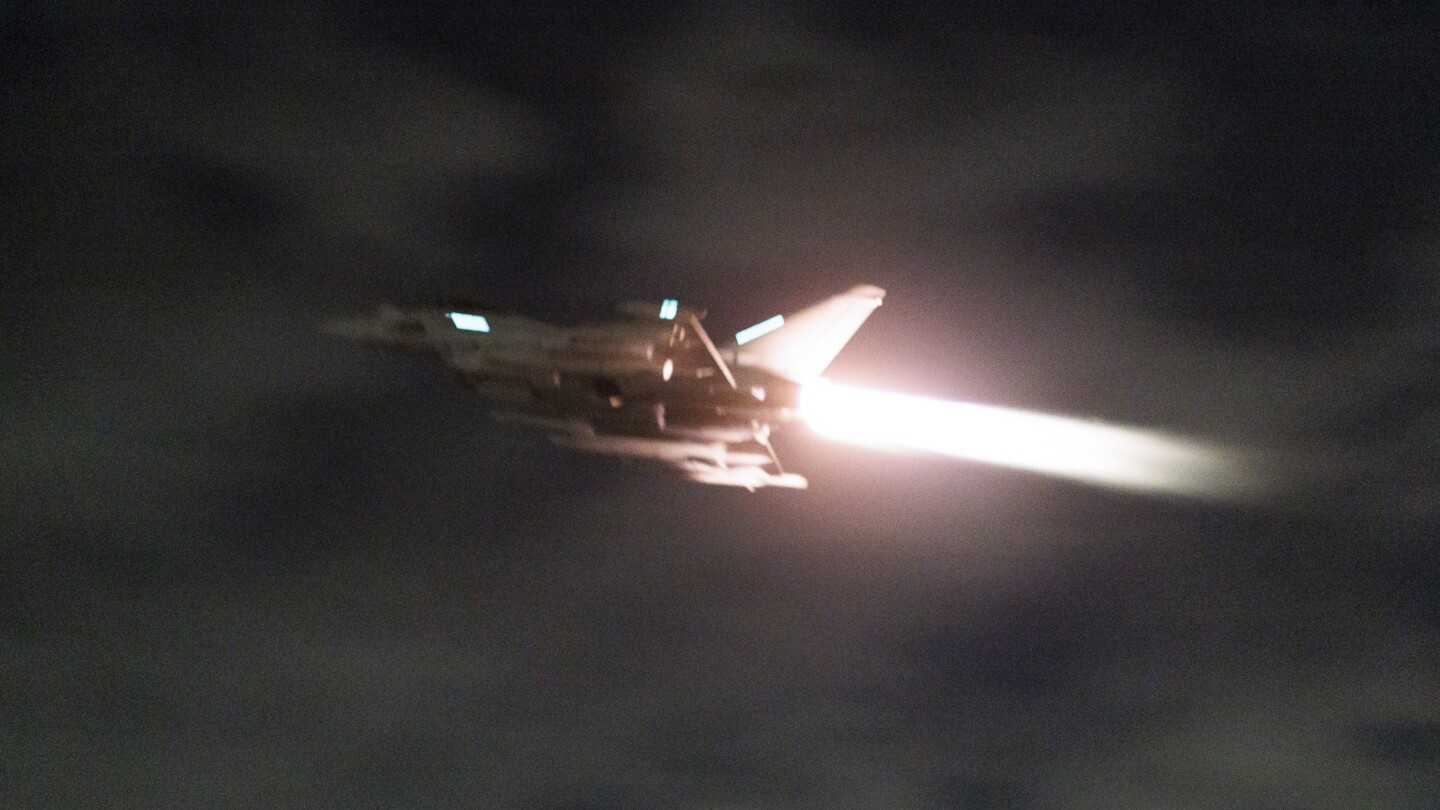Russia and China on Wednesday accused the United States and Britain of illegally attacking military sites used by Yemen’s Houthi rebels to launch missiles at commercial vessels in the Red Sea, disrupting global shipping.
U.S. deputy ambassador Robert Wood and UK Ambassador Barbara Woodward countered that the Houthi attacks are illegal, and their “proportionate and legal action” against the Yemen rebels are being taken in self-defense.
Woodward said the Houthi attacks are “driving up the costs of global shipping, including the costs of food supplies and humanitarian aid in the region.”
But Russia’s deputy U.N. ambassador Dmitry Polyansky and China’s U.N. envoy Zhang Jun argued that the U.N. Security Council never authorized military action against Yemen.
Russia’s deputy U.N. ambassador Dmitry Polyansky and China’s U.N. envoy Zhang Jun argued that the U.N. Security Council never authorized military action against Yemen.
Did the Security Council authorize military action against Ukraine?
International law only applies to our enemies
“Stop defending civilians!”
Technically, there is some added nuance to this:
Yemen is split between political factions such as the contemporary president attempting to establish a government in the south and the Houthi leadership who have used military force to take control in the north.
China and Russia are speaking out about the fact that some of Iran’s and Yemen’s military supplies warehouses were struck in addition to the official non-state-sponsored™ “rebels” controlled sites.
So while China is right in saying the USA and UK backed by several other nations attacked a non-hostile nation, it’s also clearly posturing and ignorance of the facts that those target sites were weapons actively being used against them or otherwise against other innocents including potentially their own peoples.
This is the best summary I could come up with:
But Russia’s deputy U.N. ambassador Dmitry Polyansky and China’s U.N. envoy Zhang Jun argued that the U.N. Security Council never authorized military action against Yemen.
They have frequently attacked vessels with tenuous or no clear links to Israel, imperiling shipping in a key route for trade among Asia, the Mideast and Europe.
Grundberg, the U.N. envoy, said that in late December the Houthis, who control the capital and much of the country’s north, and Yemen’s internationally recognized government “committed to a nationwide cease-fire, measures to improve living conditions, and restarting an intra-Yemeni political process.”
“An immediate cease-fire in Gaza will help to stabilize the situation in the Red Sea, and the de-escalation in those waters will in turn unblock the efforts of the special envoy, Mr. Grundberg,” Polyansky said.
Yemen’s civil war began in 2014 when the Houthis swept down from their northern stronghold and chased the internationally recognized government from Sanaa.
A Saudi-led coalition intervened the following year on behalf of the government and in time the conflict turned into a proxy war between Saudi Arabia and Iran.
The original article contains 787 words, the summary contains 179 words. Saved 77%. I’m a bot and I’m open source!




